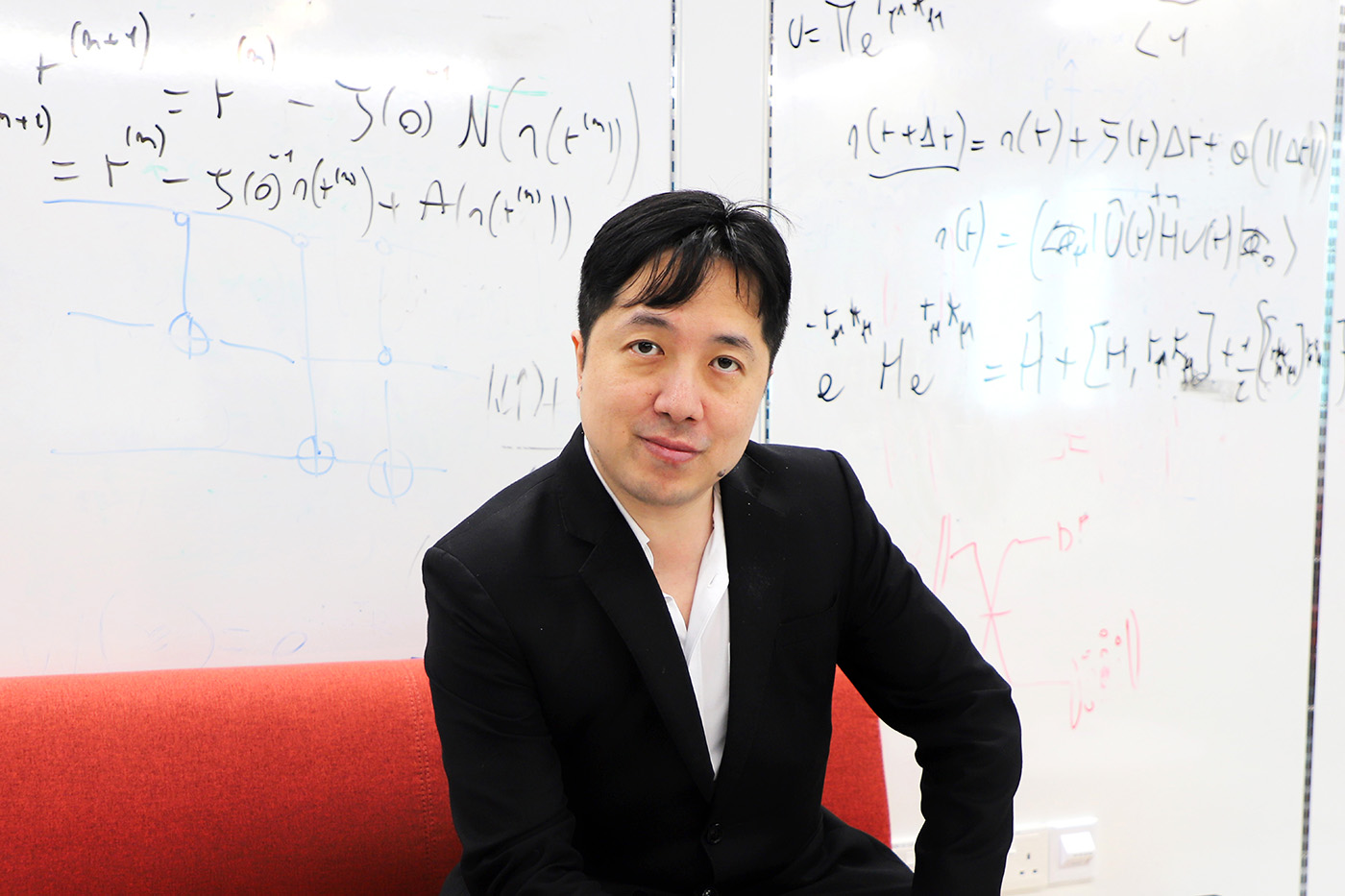Highlights
Meet a CQTian: Mile Gu
 Outside of work, CQT Fellow Mile Gu enjoys a game of Go. The game and AlphaGo got him interested in the prospect of artificial intelligence, which is currently one of the research directions of his team.
Outside of work, CQT Fellow Mile Gu enjoys a game of Go. The game and AlphaGo got him interested in the prospect of artificial intelligence, which is currently one of the research directions of his team.
You were appointed a CQT Fellow in 2023 but your association with CQT began many years before.
I first visited CQT in 2008, when CQT had just started and I was in my last year of doing my PhD in Australia. I had some travel funding and I decided to go around the world to various places where I was interested in continuing my research. I decided to stop by on the recommendation of a friend who was at that time doing her PhD here. After my travels, Singapore surprised and impressed me the most.
I ended up joining CQT in 2009 as a Research Fellow for four years. I then moved to a faculty position at Tsinghua University in China, returning to Singapore in 2016 after receiving a National Research Foundation fellowship. I am now an Associate Professor at Nanyang Technological University, Singapore (NTU Singapore).
What was memorable for you when you visited the first time?
I think it was the optimism and enthusiasm. I found many like-minded people here, who thought very deeply about fundamental questions, and that has always been what really interested me. Instantly, CQT felt like it was the place where I could pursue what I felt excited by.
What are your current research interests?
Thematically, I am still interested in a lot of deep philosophical and conceptual questions, even if they may have become a little more practical as quantum technologies develop.
Recently, I'm shifting towards trying to understand fundamentally how Artificial Intelligence (AI) works and where quantum physics fits into that picture. For example, quantum contextuality is a special property of quantum systems where their response to a question asked may depend on what question was asked previously. In classical models of AI systems, we also assume that the system remembers what question was asked before. The interesting thing is that quantum systems seem to show contextuality without necessarily fully remembering the question that was asked before. This has a lot of potential in AI because our AI systems are storing so much data and that costs a lot of energy. I have received an NRF Investigatorship to look into this idea.
My group is also looking at the energetic limits of executing complex strategies and how they play between quantum and classical. We also research interesting foundational topics. We've been recently looking at quantum uncertainty principles when people don’t measure different observables at the same time but measure the same system at two different times. This helps us understand causality questions.
Other recent work we've done is in quantum sensing. Quantum systems can sense unknown targets using fewer photons than is classically possible. We’re looking at covert illumination or covert detection, where you want to sense somebody without their knowledge.
You are also Lead PI for the QEP-funded project “Quantum-Enhanced Modelling of Financial Time-Series Data for Rare Event Forecasting”.
This is a collaboration between us, CQT Principal Investigator Kwek Leong Chuan, a team lead by Paul Griffin from Singapore Management University, Horizon Quantum Computing and UOB, the bank. It is about building quantum algorithms to understand and better estimate financial risk. Some of the most important financial events are very rare, like the financial collapse, which happens one in a million times. Insurance insures banks against these potentials. To understand the value of that insurance, we need to understand the underlying probability of these events, which is very hard to estimate classically. A one in a million event for example, would require multiple millions of runs for us to have any real idea of how likely it occurs. By pioneering a way to model these complex processes quantum mechanically in combination with leveraging a technique call amplitude estimation, we can get a quadratic reduction in number of samples required. Instead of a million simulations, we just need a thousand.
Do you have any open positions in your group?
Yes, please contact me!
What do you enjoy most about your work?
I enjoy scientific discussions the most. This involves discussing with other scientists but also discussing with new students. At NTU, I teach a course on the physics of classical and quantum information.
What do you enjoy outside of work?
I haven't had much time for it recently, but I used to play quite religiously the game of Go, or weiqi in Chinese. When AlphaGo made its mark, it got me interested in the prospect of AI. What I enjoy about the game is that it is like a universal language that you can appreciate and understand no matter which culture you are from. That is also why I like physics and music as well. Unfortunately, I haven't had much time to practice. I have two lovely kids, and my hobby now is whatever their hobby is.
Learn more
Related Stories
Meet a CQTian: Divesh Aggarwal May 16 2024 | |
Meet a CQTian: Dario Poletti May 02 2024 | |
Two CQT group leaders win support for “ground-breaking, high-risk research” May 16 2024 |






